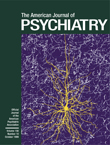Pain: Cause of Agitation in Elderly Individuals With Dementia
Ms. A, an 86-year-old resident of a nursing home with a 4-year history of dementia of the Alzheimer’s type, was admitted to our hospital for further evaluation and treatment of progressive agitation. She had no psychiatric history before the diagnosis of Alzheimer’s disease. For the first 3 years after her diagnosis, she remained independent. In the fourth year, she had to be placed in a nursing home because of her inability to care for herself and the development of anxiety, dysphoria, and perceptual distortions, which resulted in her being placed on a regimen of paroxetine and haloperidol.Ms. A had a long history of osteoarthritis, osteoporosis, and scoliosis, which affected her walking. Within 6 months of being in a nursing home, she fell and sustained a left intertrochanteric fracture, which required surgery. After surgery, she was only briefly treated with oxycodone. Shortly thereafter, she began screaming and became increasingly agitated, which escalated to aggressive behavior. At this time, she was transferred to our hospital for presumed worsening of her agitated depressive symptoms.On admission, Ms. A was alert but oriented to person only. Although she was unable to give a detailed medical history, she consistently acknowledged significant discomfort, especially in her back and left leg. Her medications at admission were paroxetine and haloperidol, the doses of which had been recently increased in an attempt to control her agitation.A medical assessment revealed no acute medical causes for her distress (including infection or cardiovascular or pulmonary changes). Untreated back and left leg pain was felt to be the most likely cause of her agitation; hence, she was treated with scheduled analgesics, including acetaminophen and ibuprofen. Within 2 days, her agitation markedly decreased, and her behavior was more appropriate. She was able to return to the nursing home; continued improvement was noted at her 1-week follow-up evaluation.
References
Information & Authors
Information
Published In
History
Authors
Metrics & Citations
Metrics
Citations
Export Citations
If you have the appropriate software installed, you can download article citation data to the citation manager of your choice. Simply select your manager software from the list below and click Download.
For more information or tips please see 'Downloading to a citation manager' in the Help menu.
View Options
View options
PDF/EPUB
View PDF/EPUBGet Access
Login options
Already a subscriber? Access your subscription through your login credentials or your institution for full access to this article.
Personal login Institutional Login Open Athens loginNot a subscriber?
PsychiatryOnline subscription options offer access to the DSM-5-TR® library, books, journals, CME, and patient resources. This all-in-one virtual library provides psychiatrists and mental health professionals with key resources for diagnosis, treatment, research, and professional development.
Need more help? PsychiatryOnline Customer Service may be reached by emailing [email protected] or by calling 800-368-5777 (in the U.S.) or 703-907-7322 (outside the U.S.).

